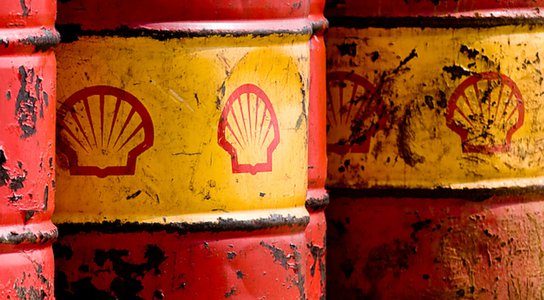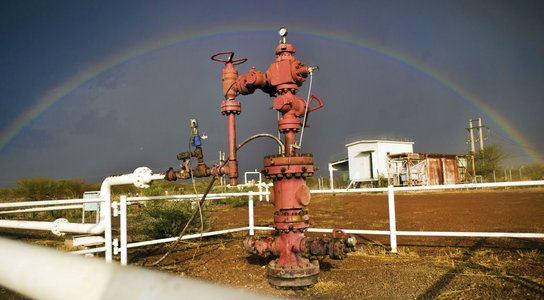The most senior managers at oil giant Eni appear to have misled shareholders over the company’s actions in a corrupt oil deal at its 2014 AGM. This is very important – as they gather for the 2015 meeting, shareholders in Italy’s biggest company should expect straight answers over a deal which poses real risks to their investments. The corruption at the heart of the deal deprived the Nigerian state of over U.S. $1.1 billion, has triggered investigations by authorities in three countries, and could ultimately lead to the Eni and its partner Shell losing access to the oil block.
The back story goes like this: in 2011 Eni and Shell paid $1.1bn for oil block OPL 245, one of the biggest off the coast of Nigeria. The money should have ended up in Nigerian state coffers, where it is badly needed - $1.1bn is equivalent to two-thirds of the 2014 Nigerian healthcare budget. Instead the payment was made to the government, who then passed on to Malabu, a front company owned by the former Nigerian oil minister, Dan Etete Etete had awarded his own company the block whilst in office under the former dictator Sani Abacha, and was now, together with others was cashing in on his corrupt acquisition.
Eni’s senior leadership claimed it didn’t know that Etete was behind Malabu at its 2014 AGM. But due diligence reports commissioned by Eni seen by Global Witness show that that Eni was told “Whatever the formal ownership structure of Malabu, all of the sources to whom we have spoken are united in the opinion that Dan Etete is the owner of the company”. The company did later adjust its story saying that they never completed their full due diligence process because they changed their mind about doing a deal directly with Malabu, doing the deal via the Government instead, and that Etete’s involvement was a ‘red flag’ and an ‘element of concern. However, it is difficult to understand how Eni’s staff could honestly conclude that its due diligence had not found clear evidence for concluding that Etete was ultimately behind Malabu.
This kind of deal poses huge risks for Eni’s investors. The case has been investigated by authorities in three separate countries and its former and current CEOs are both under investigation for their role in the deal. Nigerian lawmakers called in 2014 for it to be cancelled. This would dramatically affect Eni’s potential global oil reserves and market performance.
Global Witness put these points to Eni in March 2015. Eni acknowledged the Italian authorities investigation and stated it had reported to the US DOJ and SEC and said they were fully cooperating. The company said that many of the statements we put them were inaccurate but declined to comment on specific points.
So, the situation is alarming. Italy’s biggest company knew it was dealing with a suspect former public official in Nigeria, but went ahead with a deal they knew was for the benefit of Malabu even though it was passed through the Nigerian government anyway as court evidence has shown. As authorities probed and the net closed, it then appears to have misled its shareholders over what it knew about Etete’s ownership of Malabu. So how can investors trust the people managing their money, and what changes is the board going to make to win back that trust?
The missing money also comes at a huge cost for the people of Nigeria, as this infographic shows.
The case also highlights the need for effective laws that bring such payments into the open, so that investors and citizens know who is getting the money and what risks the deal might pose. Yet a small number of oil companies including Eni's partner Shell have been attempting to weaken the implementation of such laws in the EU and US.
Secrecy over payments for deals exposes investors to risks they do not know about, entrenches corruption and robs people in countries like Nigeria of money they badly need for things like schools and hospitals. Shareholders should be asking about this deal today – and they should demand honest answers this time.

